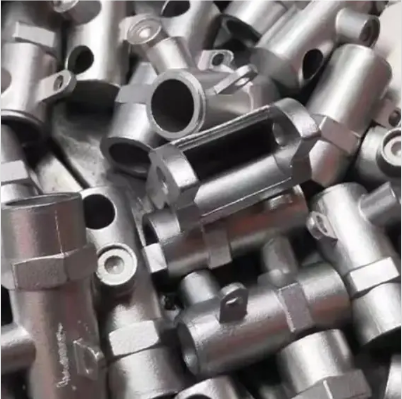Mobile:+86-311-808-126-83
Email:info@ydcastings.com
2 hp motor impeller price
The Cost of a 2% HP Motor Impeller Factors and Insights
When it comes to selecting the right components for various mechanical systems, the impeller is a crucial element, particularly for pumps and compressors. With a focus on performance and efficiency, many industries rely on specialized motors and impellers for optimal operation. A frequent inquiry among manufacturers and mechanical engineers is the price of a 2% HP motor impeller. Understanding the costs associated with these components requires an analysis of several influencing factors.
First and foremost, it's important to clarify what a 2% HP motor impeller refers to. In this context, HP stands for horsepower, which is a unit of measurement for power. The term 2% HP typically indicates a specialized type of impeller that is designed to be used with a motor rated at 2% of a horsepower value, often in low-power applications or specific industrial setups. Impellers serve to convert rotational energy from the motor into kinetic energy, generating fluid flow that can be crucial for effective operation in a variety of applications, from water treatment to HVAC systems.
The pricing of a 2% HP motor impeller can vary widely based on several factors
The Cost of a 2% HP Motor Impeller Factors and Insights
2. Design Specifications Impellers are crafted based on specific design requirements that dictate their shape, size, and performance capabilities. Custom designs tailored to unique applications can lead to increased manufacturing costs, while standardized models may offer more competitive pricing.
2 hp motor impeller price

3. Production Volume Manufacturers often offer discounts for bulk purchases. If a company needs multiple units of a 2% HP motor impeller, the cost per unit may decrease, whereas single purchases can be more expensive due to the initial setup and production costs.
4. Supplier and Brand The reputation of the supplier or manufacturer also plays a role in pricing. Established brands with a track record of reliability may charge a premium for their products, while lesser-known manufacturers might provide more affordable options, albeit with varying qualities.
5. Market Demand and Economic Factors Prices can be influenced by market demand and broader economic conditions. For instance, fluctuations in raw material costs or changes in labor rates can directly affect production costs, thereby impacting the final price of the impellers.
6. Application and Compatibility Finally, the specific application and the compatibility of the impeller with existing systems can affect cost. Specialized features or certifications required for specific industries (e.g., food processing or wastewater management) may lead to increased prices.
In conclusion, while the cost of a 2% HP motor impeller is influenced by various factors, it’s essential for buyers to evaluate their specific needs and conduct thorough market research. By considering material choices, design specifications, and supplier reputation, businesses can make informed purchasing decisions that align with their operational requirements and budget. Investing in the right impeller not only ensures efficiency in fluid handling applications but also contributes to the long-term success of the mechanical systems in which they are used.
-
Why Is Choosing the Right Motor Housing Critical for Engine Performance?NewsJul.18,2025
-
Which Impeller Types Best Optimize Your Pump’s Efficiency?NewsJul.18,2025
-
Optimize Maintenance Efficiency with Durable Oil Catch SolutionsNewsJul.18,2025
-
Maximize Pump Performance with Precision-Engineered ComponentsNewsJul.18,2025
-
Elevate Industrial Flow Systems with Precision-Engineered ComponentsNewsJul.18,2025
-
Boost Durability and Functionality with Precision Power CastingsNewsJul.18,2025











